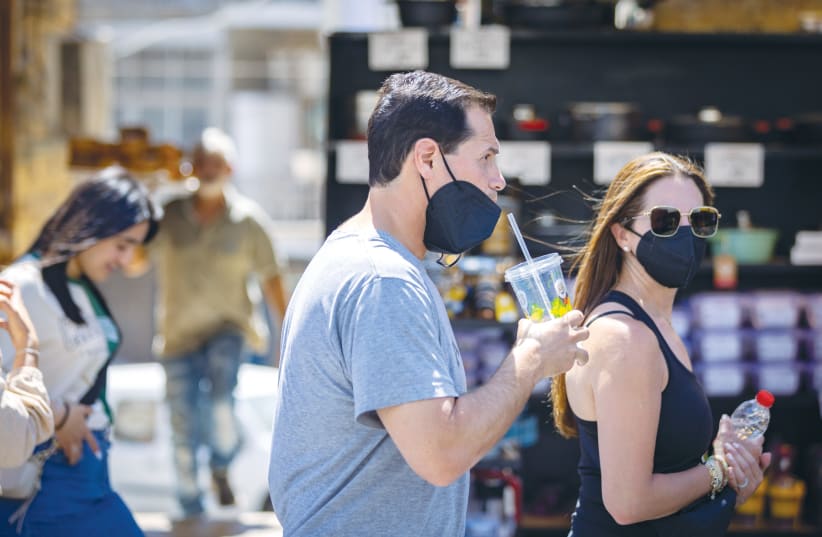As society moves to a post-COVID-19 reality, we will be tasked with addressing the scar tissue that we have developed over the last two years. Determining what was caused by the pandemic and what was caused by other factors will be key in straightening things out.
According to Israel’s Central Bureau of Statistics, last June there were more than 150,000 job vacancies. Approximately two years ago, the Bank of Israel announced that close to 40% of young people in Israel were not working in the profession that they studied for in school. We are finding ourselves in a situation where the education level of many applicants renders them overqualified for relevant job openings.
It is misaligned credentialism that is leading to education inflation. This “excess of education” is leading to what the Bank of Israel warned of having negative effects on the employee, the employer and the economy. As a mayor, I have recently learned more about why this situation exists. Some government policies actually restrains young parents from entering and staying in the workforce.
The excess of education
The Finance Ministry can boast of promising statistics including low unemployment rates and a booming labor market. But as a mayor, who stands between my constituents and the government, I am confronted with the stories behind the numbers. After completing rigorous academic programs that are designed to prepare them for the workforce, more and more young couples are finding insurmountable challenges in terms of unreliable public transportation and the lack of an educational framework for their young children.
The country is lagging behind in its Pre-K and primary education system that is in a state of collapse, leaving schools without principals and teachers. Municipalities are having difficulty recruiting social workers and other social services professionals. As the Latin proverb says, “Time reveals the truth.” Unfortunately, as I see it, the truth is pretty bleak.
This week, I began my Tuesday morning meeting with two mothers, representing 100 toddlers, who have no childcare solutions available to them as to what they will do come September 1. The problem is not one of overcrowded preschool classrooms but of the inability of the daycare center network to recruit caregivers.
This problem is not geographic specific but a national problem. The numbers speak for themselves. Just last week, I met with a group of parents who are rightfully concerned that their children’s school has not yet identified a principal for the upcoming school year.
AS WE prepare to open the 2022-23 school year, we are replacing five principals in Efrat. We have currently not found new principals. With respect to the last position, we continue to search, but we are not ready to “lower the requirements for the position.” It should not have to come to that, after all, this is the education of our children we are talking about.
Again, this is not a problem specific to this school or town. It is a problem for more than 350 educational districts throughout Israel. The earthquake has begun and on September 1, we will feel it strongly.
I recognized another element of this collapse when sitting with a group of public transportation passengers two weeks ago. They described the sad reality when during the Muslim holiday of Eid al-Adha, dozens of drivers took off for the holiday. Instead of being able to handle the predictable disruption, many bus lines simply did not function.
This is not a unique phenomenon for this holiday, nor is it a unique phenomenon in Efrat. It’s an entire public transportation system that has failed to recruit personnel, and whose drivers have been protesting for months about the harsh conditions of endless working hours. Will it take a disaster to wake us up?
As I write these lines, the director of our local Human Resources Department came to tell me that we are publishing our ninth tender since January to recruit social workers for Efrat’s Social Services Department, another national crisis that we feel in Efrat.
When taking a step back, all of these localized systemic failures, when viewed together, dramatically impact the health of our economy. A doctor who has no daycare solution for her baby will not go back to work after maternity leave. She won’t spend her time saving lives in the hospital where she is desperately needed.
The same is true for the social worker, who is also involved in life-saving work and who will not be able to do her job if there is no appropriate framework available for her children. And neither of these people will return to the office if they don’t have turn-key transportation solutions to and from work every day.
With another election season upon us I am hopeful that those at the top hear and understand that time will not stop just for us. The collapse is gaining momentum, and something drastic must be done.
The writer is mayor of Efrat.

